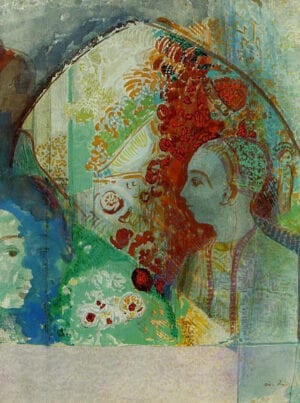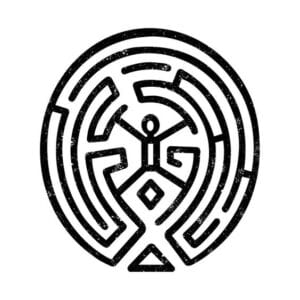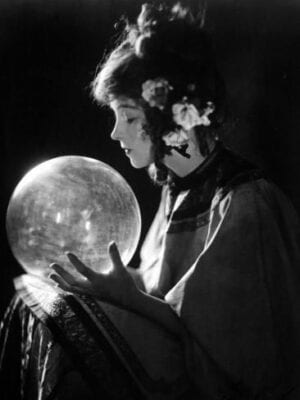Dreams are some of the most elusive, spiritual things in our everyday lives. It’s easy to pretend that our dreams are nothing when we wake up, yet they certainly feel real when we’re in the dreamscape.
Scientists, philosophers, and fiction authors alike have been obsessed with dreams for centuries. What do they mean? Why do we have them?
While no one really knows what dreams mean, we can have our own beliefs. My personal conclusion is that dreams are either produced by our unconscious mind, are a production created by someone else (such as a spirit guide, higher self, deity, demon, etc.) or are a sign that we’re astrally traveling in our sleep.
Sometimes, I feel that various types of dreams can be a combination of these different origins. Dreams can be vivid, fuzzy, metaphorical, symbolic, literal, scary, peaceful, and many more things.
Today I’ll be discussing the 13 main different types of dreams as well as the various types of nightmares that we face. Many of these types of dreams are categorized according to clinical psychologists, while other types on this list are more metaphysical in nature.
If you want to learn how to interpret your different types of dreams then scroll to the bottom for a list of techniques!
13. Current Or Recent Event Dreams:
The types of dreams that you most often have are current or recent event dreams. In these types of dreams, you simply relive events that have recently occurred in real life.

These types of dreams are very standard. Often, they are your mind’s way of working through the events.
Recent event dreams are created by your subconscious or unconscious mind. Sometimes, these dreams are a bit fuzzy; you might find that the details don’t exactly line up.
Other times, these types of dreams are vaguely symbolic. For example, you may have watched a movie about a war, then you have a dream about a violent environment.
Even if the details don’t line up perfectly, you will know that you had a recent event dream because you’ll feel the same emotions that you experienced in real life when the event actually happened.
These types of dreams may be a message that you need to work through some subconscious issues surrounding this event.
However, most often this dream is simply a result of an event that made an imprint on your mind. It may just mean that your subconscious mind needed to process the events further, so you did this work through dream.
You typically have no idea that you’re actually dreaming when you experience recent event dreams, unless you’re very good at lucid dreaming.
Keep in mind that recent event dreams are very normal and are actually helpful to our physical and emotional health! In our dream world, we are able to process the events that happen in our life without overthinking things in the real world.
12. Symbolic Dreams:
When you have a symbolic dream, you’re experiencing events that aren’t real. Instead, your dream is a metaphor for something in your life.

I find that I often have symbolic dreams when the realistic scenario is too painful to re-live. These types of dreams are a way for me to work through the trauma without actually experiencing it again.
However, symbolic dreams can also reveal things about our subconscious minds. If you find yourself having symbolic dreams about seemingly random events, dig deeper in to the dream and figure out what metaphor the events represent.
For example, you could have a symbolic dream about friendship, family, career, spirituality, fertility, etc. Our dreams are often metaphors that hide within our subconscious. You only need to figure out what the symbolic dream is trying to tell you.
11. Cathartic, Problem Solving Dreams:
Cathartic dreams can take many forms. The one constant with these types of dreams is that they allow you to work out your emotions or solve a problem.

In some way, these are therapy dreams. They give you a safe, constructive space to work out your emotional issue. These are really great types of dreams because the actual construct can change to be what you need in order to figure out your deepest emotions.
Alternatively, these dreams can also help you solve a more logical or rational problem. You can figure out the solution for a work issue, for example, in the context of the dream.
Many people think of their most creative ideas in problem solving dreams. You’ll know that you had a cathartic/problem solving dream if you wake up knowing exactly how to proceed!
10. Prophetic Dreams:
In prophetic dreams, you either see the future before it happens or receive a telepathic message.

These types of dreams are often a warning, especially if you’re seeing the future. You sometimes glimpse future events so that you can alter or stop them.
However, prophetic dreams can also be introducing you to the idea of something that will happen. This is your mind’s way of preparing you for the inevitable.
Although you may not be able to change the future in this scenario, your subconscious will be a bit more ready for anything painful.
Sometimes prophetic dreams can be telepathic dreams. This means that you receive communication from someone else’s thoughts or glimpse events happening in another location.
With these types of dreams, you will usually get insight into events that are currently happening. You’ll know you had a prophetic dream if you can verify these dreams when you wake up.
Most prophetic dreams are messages from your spirit guides or deities, but they can also come from your higher self or unconscious mind.
9. Supernatural Visitation Dreams:
Unlike prophetic dreams, supernatural visitation dreams involve elements that aren’t quite natural on earth.

An example of a supernatural dream would be encountering the dimensions of Hell or another world. Perhaps you get a visit from an otherworldly deity or have a brush with entities, the Fae, dragons, etc.
You’ll know you had a supernatural visitation dream if it was entirely unique. These types of dreams truly can’t be made up in your own head!
It will be clear when you wake up that you encountered the presence of another being or entity.
These types of dreams can mean a variety of things; the being can have positive, negative, or neutral intentions towards you.
Sometimes, these supernatural dreams are a random encounter in the astral plane, while other times these dreams are more meaningful.
For example, many people have a supernatural visitation dream involving their ancestors. If you sense that a deceased relative has visited you and the dream feels like more than a memory, you have most likely been visited by the supernatural.
8. Nightmares:
There are many different types of nightmares. You’ll know you had a nightmare if the main feelings surrounding your dream are negative. You might feel fear, guilt, shame, horror, etc.

Nightmares can be messages from the subconscious mind. They might show what you need to work out in real life, or they may illuminate the things you’re secretly afraid of. You might have more nightmares following an especially stressful event.
Alternatively, nightmares can be messages or warnings from your spirit guides, higher self, ancestors, deity guides, or other supernatural beings.
Lastly, certain types of nightmares can be a real life recreation or metaphor for past trauma. Even when you try to repress memories, they tend to bubble up during sleep, when you’re the most vulnerable.
Nightmares can even have multiple messages at once.
The most common types of nightmares in adults are:
- Dreams about being chased
- Dreams about death
- Dreams about feeling lost
- Dreams about feeling trapped
- Dreams about being attacked
- Dreams about snakes
- Dreams about teeth falling out
- Dreams about drowning
- Dreams about poor performance
- Dreams about natural disaster
Keep in mind that most types of nightmares will be personalized to you in some way. You will need to dig into the emotions and metaphors behind the visceral events of your dream to figure out why you had the nightmare in the first place.
7. Night Terrors:
Unlike nightmares, night terrors are different types of dreams that are more common in young children.
Night terrors are actually a sleep disorder. When you have a night terror or sleep terror, you will physically flail, scream, or even sleepwalk while you’re still asleep.
In the dream realm, night terrors are much more intense types of nightmares because your physical body gets more involved.
However, these types of nightmares can also reflect unresolved trauma, repressed fear, or warning signs from guides.
6. Lucid Dreams:
Some of the coolest, most different types of dreams are lucid dreams. This literally means that you “wake up” while you’re dreaming.

When you have a lucid dream, you manage to recognize that you’re in a dream and change your setting as much as you’d like.
Many people are able to do fantastical things in lucid dreams such as fly, read people’s thoughts, or influence outside events with their minds.
However, lucid dreams aren’t always good. They can be happy, interesting, intellectually simulating, boring, guilt-ridden, terrifying, and more.
The only constant with lucid dreams is that you know you’re dreaming and can influence the world.
Lucid dreaming can be especially helpful when you’re having a recurring dream and need to work out and issue.
Keep in mind that lucid dreaming is not the same as astral travel. I personally feel that lucid dreaming happens in a landscape that is all our own, while astral travel happens in other realms or dimensions, so we’re not able to influence events in the astral plane as easily.
Almost everyone can experience lucid dreaming. However, these types of dreams take a bit of practice to experience and master.
Try to do a “reality check” the next time you’re in a dream. It can be helpful to do these in real life as well so you get into the habit. That way, your subconscious mind is more likely to remember your routine reality check, even when you’re in a dream.
A reality check is when you do a specific action to determine whether or not you’re awake. Some of the easiest reality checks are:
- Check in the mirror to see if your reflection is clear and accurate
- Push your hand into a solid object. Does it morph or move?
- Look at an object, look away, then look back. Did it move or shift?
- Check the time on the clock. If it’s constantly changing, then you’re in a dream
- Pinch your nose and see if you’re still able to breath
You can also figure out ways to jump into a lucid dream consciously. Sometimes, even setting the intention that you will lucid dream before bed will work.
Another method is the “Wake Back To Sleep” method. Set an alarm clock for 5 hours after you go to sleep. When the alarm goes off, you should stay up for 30 minutes before going back to sleep.
The theory is that you’re more likely to lucid dream when you fall back asleep the second time. It may not work immediately, so keep trying for a number of nights in a row.
5. Past Life Dreams:
Although many official sources don’t recognize past life dreams as legit types of dreams, I experience them quite a lot.

Of course, this only applies if you actually believe in past lives or the idea of reincarnation. Past life dreams are actually memories of other lives.
These types of dreams can be scary, happy, momentus, or insignificant. You’ll know you’re having a past life dream if you feel like yourself but also someone else.
Your circumstances will be totally different. For example, you may dream of living in a small village and fishing. However, this will feel normal to you in the context of the dream. It will be daily life as usual.
You may experience past life dreams because a memory is simply bleeding through. Other times, these types of dreams are an indicator that you need to process trauma or emotional issues from this life.
Although past life dreams are the most common types of dreams in this context, you can also have future life dreams.
I have only had one future life dream. I knew it was set in the future and had a whole different group of friends. I was myself, yet I was also someone else.
For all I know, the dream wasn’t even set on earth! This dream convinced me that time doesn’t work in the spirit world as it does here.
However, past life dreams are much more common.
4. Shared Dreams:
Although shared dreams aren’t common, they are one of the most well-documented types of dreams because they aren’t explained by science.

When you have a shared dream, you will experience the same dreamscape or events that someone else you know experiences. It can be shocking to compare notes and realize that you had the exact same dream at the same time!
There are many different theories about the purpose of shared dreams. I personally believe that shared dreams are actually types of dreams where two people meet in the astral plane and experience the same events.
3. Fantasy Dreams:
When you’re feeling especially low, you may have these types of dreams. Fantasy dreams, also known as comfort dreams, are dreamscapes that give you everything you want.

You’ll know you had a comfort dream if you encounter positive parts of your past or experience your fantasies.
For example, someone may have a dream about their old home and feel comfort from hanging out in their old room. Alternatively, they could dream about meeting their icon and having a constructive conversation, while is more of a fantasy dream.
The purpose of these types of dreams is to sooth the mind. Your subconscious mind knows that you need a bit of comfort or stability, so you experience dreams that give you exactly what you need.
Ultimately, these types of dreams are a method of self-soothing.
2. Recurring Dreams:
Some of the most distressing types of dreams are recurring dreams. These dreams can feel totally random or irrational, but recurring dreams are often a sign that you need to deal with something major.
Keep in mind that recurring dreams can be symbolic, metaphorical, supernatural, or prophetic.
You will know that a dream is especially important when it’s recurring. Make sure that you sit down and analyze the dream to figure out why you’re experiencing the same events over and over.
Lucid dreaming can also be a good way to take over your recurring dreams and change them into something positive.
1. False Awakenings:
These types of dreams can be ultra-freaky. False awakenings are dreams in which you believe that you woke up. However, you’re actually still asleep.

The purpose of false awakening dreams is to make you think you’re in real life so you can fully experience the events of the dream.
Reality checks, detailed in the lucid dreaming section, can be helpful for false awakening dreams. Practice reality checks in daily life if you find that you’re having a lot of false reality dreams and want to be more aware.
How To Interpret Your Dream:
I personally think it can be helpful to figure out what different types of dreams you’re experience before you try to interpret them.
After all, the type of dream will give you clues as to why you’re having this specific vision.
Once you know what types of nightmares or dreams you’re having, the next most important thing about your dream is to analyze how you felt.
Were the emotions positive or negative? Were you afraid, angry, joyous, revengeful, or calm?
Negative feelings usually indicate that a threat is present in your life. This can be a person, a situation, or your own thoughts. However, you can also feel afraid because you’re experiencing something powerful in your dream.
Feeling fear in a dream is quite common. Most of the time, fear is an indication that you need to dig deeper and face your trauma. However, fear can also be a warning sign that you need to be careful of someone or something in real life. I recommend doing some divination to figure out which type of message you’re getting.
Positive feelings usually mean that you’re turning over a new leaf or are about to achieve a goal.
You will need to put the dream into the context of your own life. Anything that feels familiar or reminds you of a past experience will be important.
I always recommend that you journal right after you wake up. If you’re still experiencing distress or confusion about a recent dream, sit down and write about it.
Do this in a stream-of-consciousness way. If something comes into your head, write it down. Feel free to draw, make maps or diagrams, write lists, or detail anything else that feels important.
Next, do some divination work to figure out exactly what your dream means. Even if you think you know, divination can be extra confirmation.
Some of my favorite methods of divination for dream interpretation are:
- Bibliomancy
- Tarot card readings
- Using the pendulum (with charts or yes/no questions)
- Scrying (including crystal ball reading)
You can also do a meditation where you try to reenter your dream. Even if the meditation doesn’t exactly recreate your vision, this can still be really effective to delve into the feelings and message behind your dream.
Ultimately, you’ll know if you dream interpretation is correct because it will feel right in your gut. When you know, you know.
If you aren’t sure, this usually means that you haven’t totally figured out your dream yet. Keep pushing and you will certainly get there!


